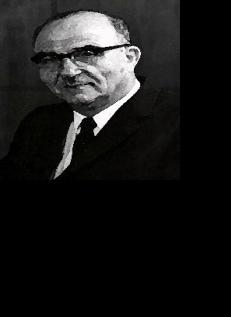Lisya Kaspi
Research Topic: Emotion Regulation and Religion
Advisor: Prof. Maya Tamir
Religion is a cultural system involving doctrines, belief systems, and worldviews (Cohen 2009). Religions also shape emotions. They can do so by directly influencing emotional reactions (e.g., prescribing rituals that foster certain emotional experiences) or indirectly by shaping emotion regulation (Clark et al., 2018; Emmons, 2005; Vishkin et al., 2014; Yinger,1970). Recent literature suggests that more religious people are more motivated to decrease unpleasant emotions, increase pleasant emotions, and be more successful at emotion regulation (Vishkin et al., 2016). However, existing research focused exclusively on individuals’ attempts to regulate their own emotions (intrapersonal emotion regulation), ignoring individuals’ attempts to regulate other people’s emotions (interpersonal emotion regulation; Zaki & Williams, 2013). Interpersonal emotion regulation has been linked to a range of benefits, including wellbeing, reduction in depressive symptoms, and increased life satisfaction (Berrios et al., 2015; Doré et al., 2017; Morris et al., 2015; Niven et al., 2012; Zuffiano et al., 2018). Therefore, understanding whether religiosity is linked to interpersonal emotion regulation could inform our understanding of religion and psychological wellbeing. Furthermore, to date, only limited research has examined emotion regulation in orthodox religious individuals. Such individuals may potentially be qualitatively different from non-orthodox individuals (Latzer et al., 2007; Levin 2012; Pirutinsky et al., 2012; Prioreschi et al. 2017; Roff et al., 2005). For instance, religions offer social support networks to their members (Diener et al., 2011; Salsman et al., 2005), potentially leading to increased interpersonal emotion regulation in more religious communities. Therefore, the main question of this research is whether religiosity (secular, religious non-orthodox, orthodox) affects motivation for and implementation of intrapersonal and interpersonal emotion regulation. Moreover, how ultra-orthodox Jews in Israel vary from the other religious groups regarding interpersonal emotion regulation will be explored.
To examine how religiosity is related to interpersonal and intrapersonal emotion regulation, I will conduct a two-stage project. I plan to assess the differences in interpersonal and intrapersonal emotion regulation in secular, low religious, and orthodox Jews and Muslims in Israel. The participants will be recruited through an online survey company and complete the survey in their native languages. The survey will assess religiosity, attitudes towards emotions, emotion regulation, and motivation to influence emotions in oneself and others. We predict a positive link between religiosity and motivation to engage in both types of emotion regulation. I plan to complete data collection by April 2022. Depending on the support received from the self-reported survey, we will be able to advance to the second stage of the project, which will involve conducting a laboratory study. This will allow us to assess online emotion regulation preferences in a controlled setting.

